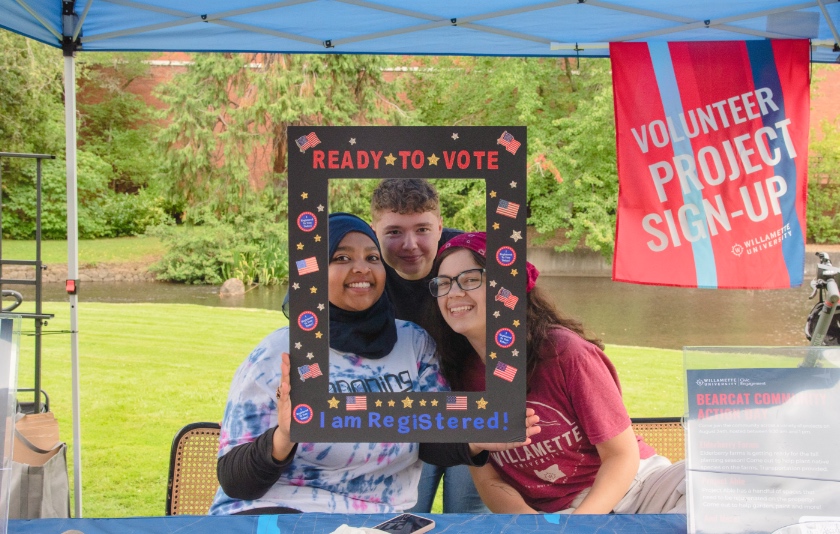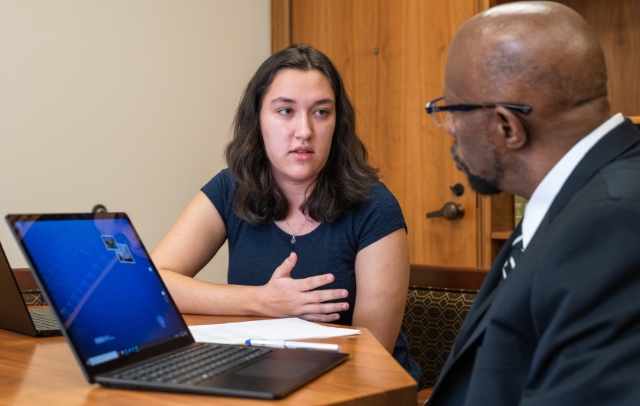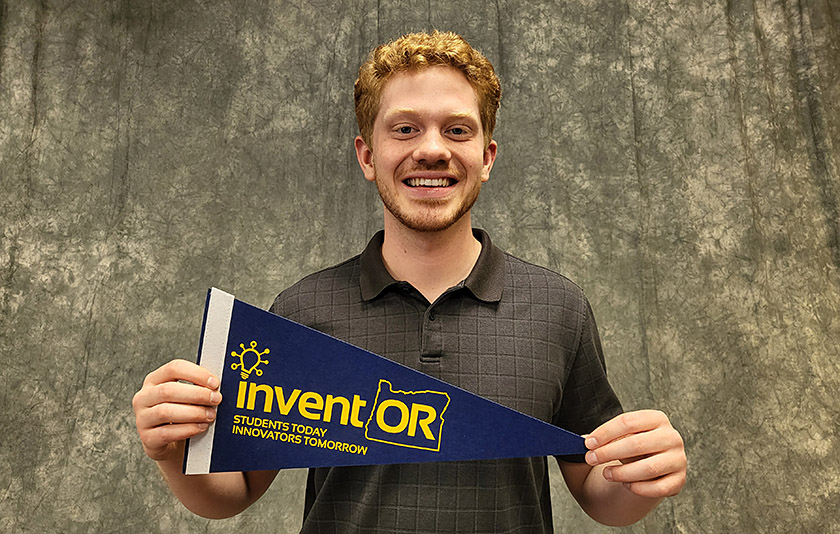In recognition of Black History Month, which runs Feb. 1-March 1, Willamette University spoke to students about its significance.
Laila Pickett BA’24 and Emerald Russell BA’24 are the president and vice president, respectively, of the Black Student Union. This student organization is dedicated to the unification and healing of African-Americans, people of African descent and others who are part of the African diaspora.
Pickett is a public health major and biology minor. Russell is a civic communication and media major and music minor.
Why is Black History Month meaningful to you?
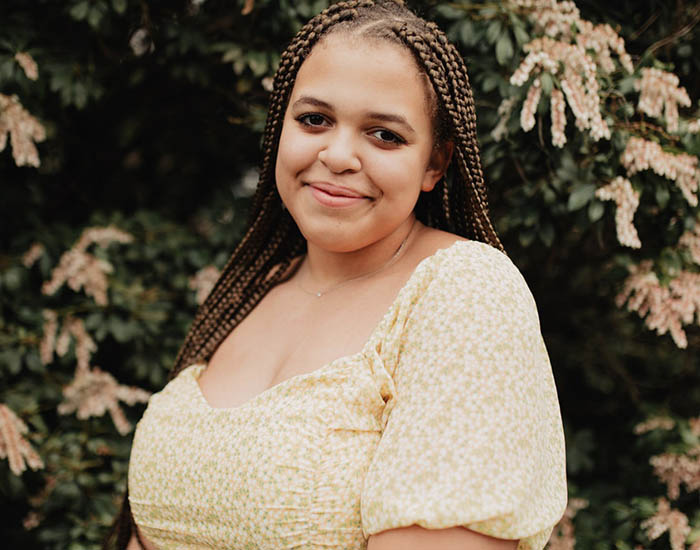
Pickett: I unapologetically celebrate myself every day of the year, but Black History Month gives others time to reflect and learn about the changing experiences we face as Black people in America, whether that be the prideful and magical moments or the injustices we endure.
Russell: The month provides an opportunity to recognize and celebrate the contributions and achievements of African Americans throughout history, as well as to educate people about the ongoing struggle for civil rights and social justice.
Why is it important for the Willamette community and beyond to celebrate it?
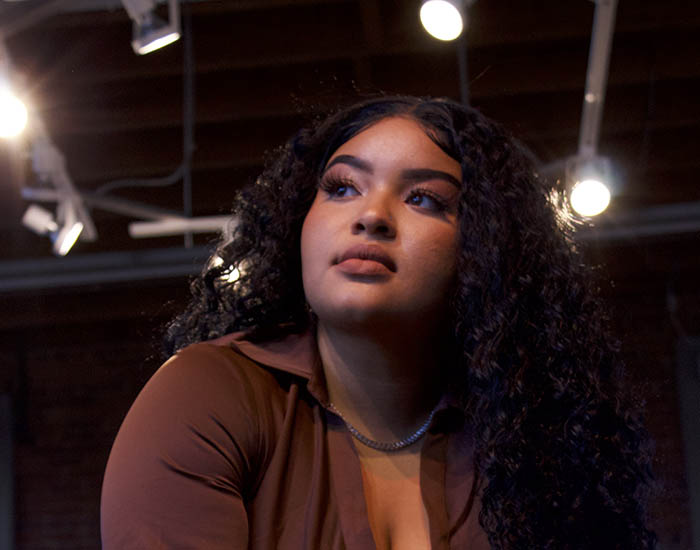
Russell: Celebrating it allows anyone to expand their knowledge and understanding of Black people and history. Without this dedicated space and time, people may not have the opportunity to learn about Black history and culture authentically and comprehensively, and may rely on media and textbooks that often present a limited and biased view of Black history and culture.
Celebrating Black History Month allows for biases and misconceptions to be challenged and dispelled, and for people to gain a deeper understanding of Black history in a way that is not only more accurate, but also more authentic by spotlighting Black people's voices. This, in turn, promotes a more inclusive and equitable community at Willamette and beyond.
Pickett: Keeping communication open and asking questions is really important. In my experience as an African American woman, my peers and professors tend to look to me for answers when it comes to tough racial issues, or very awkward racially-based conversations. Rather than it being free flowing, it turns into, "Is this OK to say?" "Am I racist for asking that?" and “That wasn't very liberal of me!"
This isn’t an uncommon experience for members of the African diaspora across the nation. For those who don't identify as people of color tend to forget that racism still exists, and most importantly, implicit bias. This Black History Month, I want to open the conversation so we can understand how each person feels. We are not here to educate others in the classroom. But by learning new ways to be a good ally and listening to our experiences, we can make a difference.
Why did you join Black Student Union?
Pickett: I have gone to predominantly white institutions my entire life, and the Black Student Union has always been a sacred space for me — having a space to authentically be myself is really important. Stepping into the presidential role this semester was a little scary at first, but being able to cultivate a community that is slowly regrowing its roots has been very impactful. I want to be able to give the feeling of a safe space to other students or faculty who identify with the African diaspora.
Russell: I joined BSU because it allows Black students a space to be heard and valued, and to connect with others who share similar experiences and perspectives.
How is BSU recognizing the month?
Pickett: The Black Student Union has some fun things planned. We’re putting on some small activities to foster conversation and include everyone in the celebration of the African diaspora. There will also be some opportunities to hear from some guest speakers from the Oregon community!
